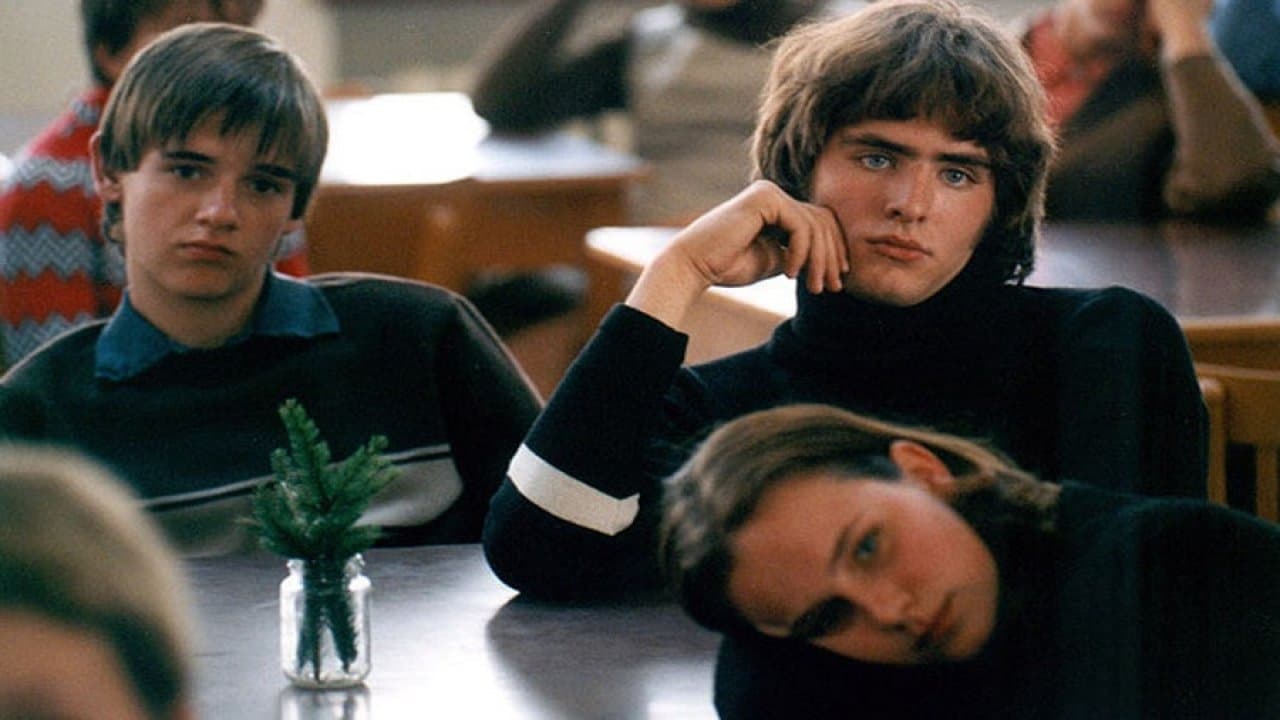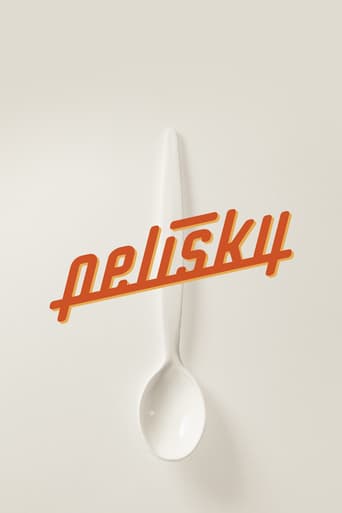

hyped garbage
... View MoreBlistering performances.
... View MoreI enjoyed watching this film and would recommend other to give it a try , (as I am) but this movie, although enjoyable to watch due to the better than average acting fails to add anything new to its storyline that is all too familiar to these types of movies.
... View MoreThe movie's not perfect, but it sticks the landing of its message. It was engaging - thrilling at times - and I personally thought it was a great time.
... View MoreThe film Cosy Dens focuses on three families living in Czechoslovakia during the Prague Spring, a time when the country was much less influenced by Communism than it had been before or after. However, despite the political backdrop, the threat of Communism and the fact that this more liberal society is only temporary does not play a major role in the narrative. The primary events of the film follow typical families of the period without dwelling too much on Czech society as a whole. The movie shares similarities to Christmas movies in American cinema. In visual style the movie looks a lot like A Christmas Story. Both films make use of an idealized looking past where everything has this gold-tinted lighting and everyone wears pristine versions of the clothes that existed at the time. In contrast to this romanticized version of the past, there is the more chaotic element of family drama. This is common in holiday movies and uses the cynical subversion of Christmas being the "happiest time of the year" to derive much of the humor. The film shows Michal's sister receiving a cross bow which is similar to the BB gun in A Christmas Story, and the overall demeanor of Michal's father is similar the "The Old Man" in that they both act like they are the all-knowing patriarchs of the their family when in fact they are both bumbling idiots in actual practice. There's also an interesting moment that parallels Home Alone where a character lights the top of his head of fire. This may or may not have been a deliberate reference but it is a very specific thing that happens in both films and would be an odd coincidence if it was not intentional. Cosy Dens is a slice of life movie, so there is very little plot. The teenage character of Michal has a crush on his neighbor Jindriska, who begins dating Elien. Michal's infatuation drives many of his actions that propel the story. Jindriska and Michal's parents represent the opposing ideologies of the Prague Spring. Mr. Kraus (Jindriska's father) is strongly opposed to the Communists, while Mr. Sebek (Michal's father) is a Communist soldier. As neighbors Kraus and Sebek often interact with each other, but resent each other because of their opposing ideologies and differing personalities. This dynamic represent something interesting about Cosy Dens. Many aspects of the movie work as both a simple coming of age story and as a microcosm for Czech politics at the time. For example, the character of Elien is a mod that is interested in the British subcultures that were emerging at this time. Within the movie's plot he is a romantic rival to Michal, and in the larger context of Czech society he represents the influx of Western democratic ideas and culture that define the Prague Spring. The idea behind subcultures whether mod, hippie, or any other is the rejection of mainstream culture and the society it represents. This glorification of individuality is in stark contrast to the ideas of societal unity that Communist like Sabek believe. Elien even showed American films, directly spreading that culture to the people in his community. Sabek's Communist allegiance is manifested in his glorification of new technology created by other Communists such as the "unbreakable" plastic cups, and much like the idea of Soviet Communism, the notion that the cups are unbreakable does not hold up to scrutiny. The death of Kraus's wife somewhat foreshadows and parallels the Russian invasion in that many of the things he cares about, his wife and his ideology, are not going to be a comfort to him forever, and in fact he is the one that is most upset when the invasion occurs. Outside of relationships that represent the political atmosphere of the time, there are also typical family relationships that do not seem to represent anything else. The relationship between Michal and his father is strained because they have different interest. Michal is disinterested in his father political obsessions and Mr. Sebek thinks his son's interests are going to turn him into a degenerate. Similarly, Jindriska's father thinks she is a failure because she doesn't want to practice playing the piano and doesn't share his passion for having all the skills he takes so much pride in, while she shares a closer relationship in her more accepting mother. Sebek's relationship with his brother is competitive, almost to an unhealthy level, and he goes out of his way to impress him. These interactions seem to represent a fairly realistic family dynamic that is influenced by a generation gap and the stress of entertaining a large group of people over the holidays. The film culminates in the Soviet invasion of Czechoslovakia in 1968, ending the Prague Spring, but, except for Mr. Kraus's strong anti-Communist patriotism, the movie has very little to do with politics directly, especially if the viewer unfamiliar with the events. First and foremost it is a movie about family relationships. This makes the vast majority of the movie very accessible and watchable for everyone. However, the ending does not seem like an appropriate conclusion to this mostly universal story. It is very specifically about the end of the Prague Spring. The entire movie does deal with the Prague Spring, but it is handled in a much more subtle way, using characters to represent the political tension. The invasion was a national event, whereas the rest of the movie is more personal and focused entirely on the lives of a few people. Even when these people have ideologies that are nationally based (anti/pro-Communism,) they express these ideas in the way they interact with their family and friends. The invasion is impersonal and largely irrelevant to everything that happens up until that point. It would be more satisfying if there was a conclusion that only effected the characters and the world that had been shown up until that point.
... View MoreThe main issue with this movie is the viewer's knowledge of fairly recent Czech(oslovak) history, namely Prague Spring and subsequent Russian invasion of Czechoslovakia. Without this knowledge too much gets lost 'in translation' and I do not believe the movie can be fully enjoyed, understood, and felt.It is a rich, deep, and extremely well-made movie that will make you laugh out loud as well as cry. It switches so easily and smoothly from deeply sad moments to moments of pure comedy without going over the board and without that Hollywood trademarked kitch-drama. To me, personally, as well as many of my acquaintances, watching this movie is pure joy.Another one of Pelisky's many 'plusses' is the amazing soundtrack that consists of great Czech music from around the time period that it is trying to depict. Also, performance of all the actors is just about as good as it gets, especially the actors who play father Kraus (Kodet) and his daughter Jindriska, are simply outstanding.Final advice: First, read up about Prague Spring and Russian invasion, as well as about Czech Christmas traditions and get a Czech friend to watch Pelisky with you and you will definitely not waste your time - it might turn into a completely amazing cultural experience inside your living room. Also, watch it more than one time - there's always something new you'll find - a new joke to laugh at, etc.
... View MoreAs a person who's been in Czech Republic and knows many Czechs, I say this movie reflects a lot from the genuine Czech lifestyle. The framing when switching from one family to another is splendid, and the characters are absolutely brilliant. An average person could say Jindra's father is a little bit exaggerated, but I found my own father in him so I can relate. Czech family structure and its orientation with the iron curtain culture is elegantly touched. Also, the sad fact that some people unfortunately have to leave their homes and move abroad is another major issue of this movie. I believe anyone from a country that has a lot of negative immigration will feel something different watching it. Another success of the director is that, the scenes spend a lot of time with the Christmas time. But it never gets boring. What I'm looking for in a movie is depth, (which is why I don't really fancy most American movies) and it's present in this one. Social issues, relationships, politics, traditions, everything! In addition to all this, Kristyna Novakova has an outstanding performance, and to me she's a starlet with a bright future. Czech this movie out! You won't be disappointed...
... View MoreA beautifully understated story of ordinary people living their everyday lives through the trying times of Christmas '67 and the Prague Spring during the run up to the Soviet invasion. While the setting has be caught with stark and depressing realism, the film is perfectly balanced with a gently comic and bittersweet observation of the families and their relationships as they struggle through events from the mundane to the tragic. Personal loss, both of freedom and of loved ones, and the way life still manages to go on has been captured with deceptive ease and without resorting to the usual cliches and predictable attempts at closure that so often seem to pollute western cinema of this type.
... View More